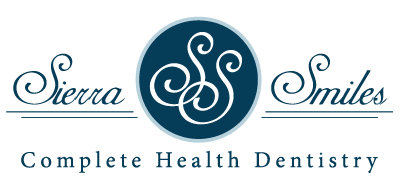Sleep is essential for good health, but unfortunately, many seniors struggle to get the restful sleep they need. From chronic pain to medication side effects, there are a number of factors that can adversely affect sleep, not to mention the natural change in sleep patterns and habits. Seniors may find that they wake up earlier in the morning or have more trouble falling asleep at night. This can be due to changes in the body’s natural sleep-wake cycle or changes in the production of sleep hormones.
No matter what is affecting sleep, the dangers are clear. People who are not getting the recommended amount of sleep are not only more at risk for mood swings and accidents, but also for serious disease. Seniors with sleep deficits are at greater risk for neurological disorders like dementia, depression, Alzheimer’s and Parkinson’s disease, as well as at greater risk for cardiovascular disease, stroke, and hypertension.
Even worse, even though 30-70% of adults have reported having trouble sleeping, most people remain undiagnosed with sleep disorders. Up to 80% of people with sleep apnea, for instance, do not know it!
Here are three of the most common reasons why seniors struggle with sleep, and what they can do about it:
-
Restless legs syndrome
Restless leg syndrome (RLS) is a neurological condition that causes unpleasant sensations in the legs, such as crawling, tingling, or itching, that are relieved by movement. This can make it difficult to fall asleep and stay asleep, leading to daytime fatigue and irritability, as well as make it harder to remember and concentrate.
Seniors are more likely to develop RLS, and the symptoms can worsen with age. While the exact cause of RLS is unknown, there are several factors that may contribute to the condition. These include low levels of iron in the brain, genetics, and certain medical conditions such as kidney failure, diabetes, and peripheral neuropathy. Treatment for RLS may include medications that increase dopamine levels in the brain, which can help relieve symptoms. Other treatments may include iron supplements, lifestyle changes such as regular exercise and avoiding caffeine, and avoiding certain medications that can worsen RLS symptoms.
If you think you or a loved one might be experiencing RLS, talk to your primary care doctor or neurologist.
-
Environmental factors
Environmental factors such as noise, light, temperature, and bed quality can affect sleep, and seniors may be more sensitive to these factors than younger adults. For example, loud noises or bright lights outside can disrupt sleep, as can an uncomfortable mattress or bedding.
The right bed plays a crucial role in promoting a good night’s sleep, especially for seniors. From temperature regulation to correct joint support to ease of getting in and out of bed, if a senior is still using the same bed they have been for the last 20-30 years, chances are they’ll experience significant discomfort.
A mattress that is too soft or too firm can cause pressure points that lead to pain in the back, hips, or shoulders, and without features like rails or adjustable heights, sleeping can become dangerous as seniors are more at risk for falls.
Because we know beds are so important yet often overlooked, Sierra Smiles has partnered with Caring.com to provide a resource for choosing an adjustable bed. The market is swamped with beds that often come with a significant monetary investment, so it’s vital to find the right bed for you or your loved one. You can find it here.
-
Sleep Apnea
Up to 18 million Americans have sleep apnea, and it’s estimated that up to 32% of people over the age of 65 have it. Sleep Apnea happens when the muscles in the throat relax during sleep and the airway narrows or closes, causing a pause in breathing. These pauses in breathing can last from a few seconds to a few minutes and can occur multiple times during the night, resulting in fragmented sleep and low oxygen levels in the body.
Some common symptoms of sleep apnea include loud snoring, gasping or choking during sleep, morning headaches, daytime sleepiness, and difficulty concentrating. If left untreated, sleep apnea can increase the risk of developing other health problems such as high blood pressure, heart disease, stroke, and Alzheimer’s disease.
While treatment for sleep apnea typically involves using a continuous positive airway pressure (CPAP) machine, which delivers air pressure through a mask worn over the nose and/or mouth during sleep, there are other, less invasive options to not just maintain, but resolve sleep apnea completely. Our sister clinic, Sierra Sleep Airway and Wellness Center, specializes in diagnosing and treating sleep apnea and other sleep disorders.
Getting a good night’s sleep is absolutely essential to maintaining health and quality of life for seniors. If you or a loved one is experiencing sleep disturbances, give us a call at (775) 977-0822 or visit the Sierra Sleeps website so we can help you determine the underlying cause and work together to resolve it.
